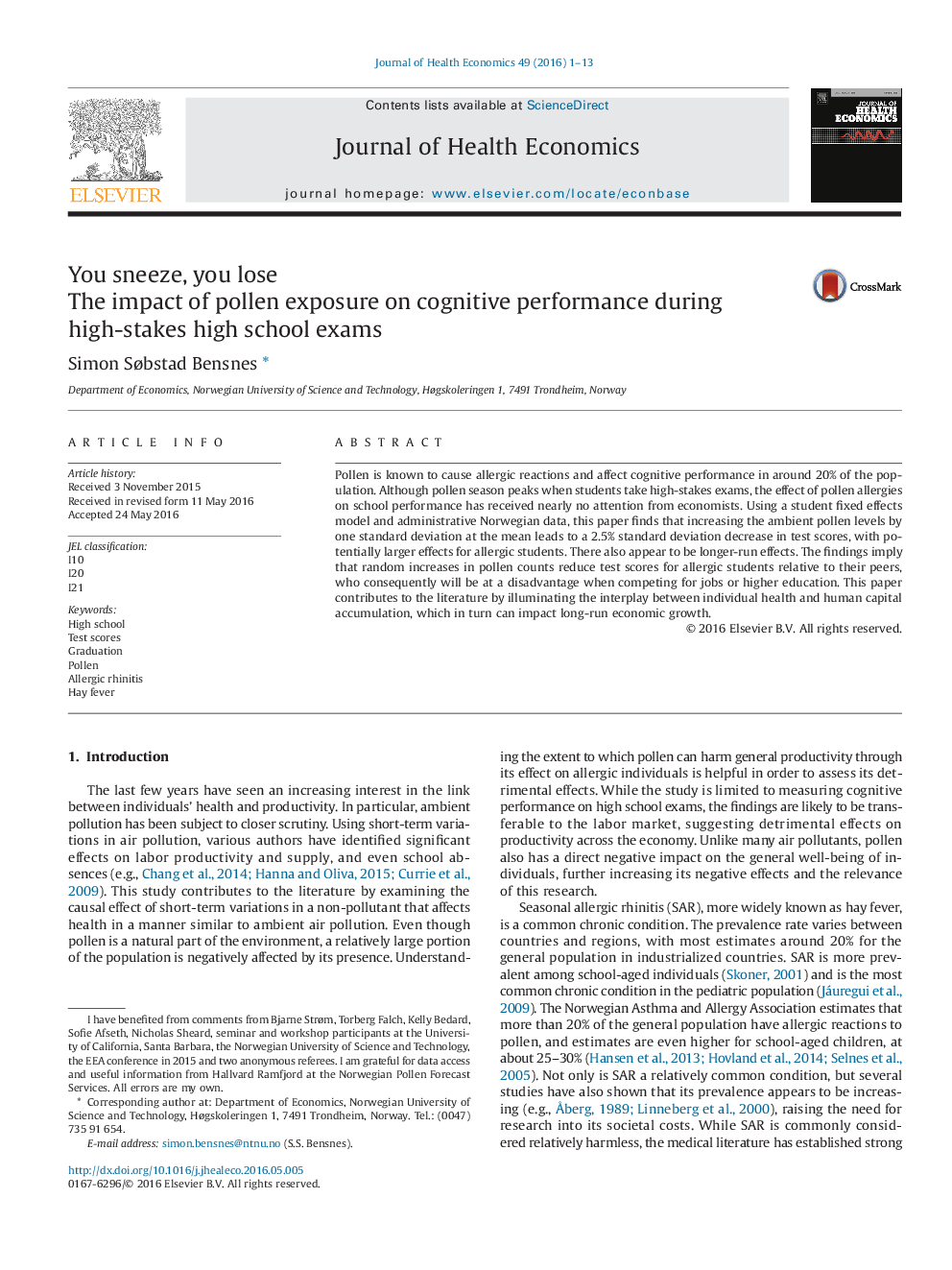| Article ID | Journal | Published Year | Pages | File Type |
|---|---|---|---|---|
| 7363053 | Journal of Health Economics | 2016 | 13 Pages |
Abstract
Pollen is known to cause allergic reactions and affect cognitive performance in around 20% of the population. Although pollen season peaks when students take high-stakes exams, the effect of pollen allergies on school performance has received nearly no attention from economists. Using a student fixed effects model and administrative Norwegian data, this paper finds that increasing the ambient pollen levels by one standard deviation at the mean leads to a 2.5% standard deviation decrease in test scores, with potentially larger effects for allergic students. There also appear to be longer-run effects. The findings imply that random increases in pollen counts reduce test scores for allergic students relative to their peers, who consequently will be at a disadvantage when competing for jobs or higher education. This paper contributes to the literature by illuminating the interplay between individual health and human capital accumulation, which in turn can impact long-run economic growth.
Related Topics
Health Sciences
Medicine and Dentistry
Public Health and Health Policy
Authors
Simon Søbstad Bensnes,
